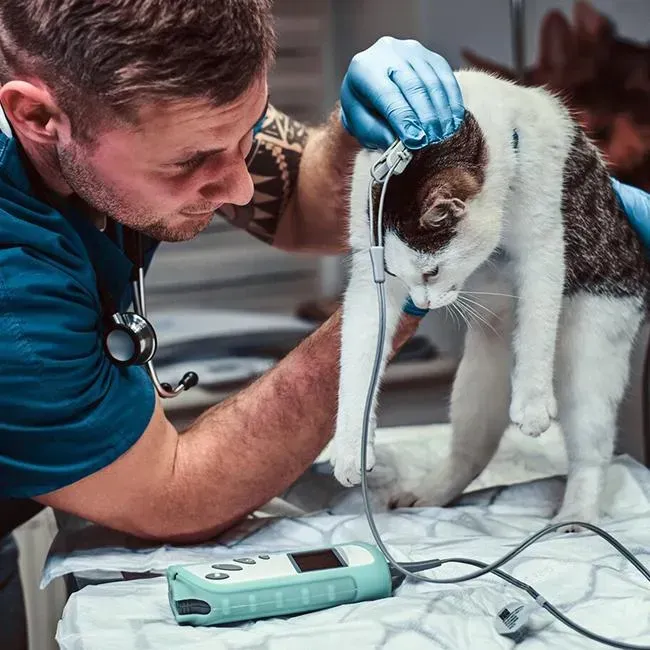Feline Cardiology Services in Stockton, CA
At Cat Cardiology, we are dedicated to the health and well-being of your beloved feline friend. Just like people, cats can suffer from heart diseases, and early diagnosis and treatment can make a significant difference in their quality of life. Our specialized cardiology services focus on understanding and treating heart conditions in cats, helping you provide the best care for your pet.
Understanding Cat Cardiology
Cats are masters at hiding discomfort, which means heart diseases often go unnoticed until symptoms become severe. Our mission is to bring awareness to feline heart health and offer specialized support. Whether your cat has been diagnosed with a heart condition or you’re simply looking to ensure they are as healthy as possible, we are here to help.
Common Heart Conditions in Cats
Feline heart diseases are often complex, with conditions that can develop over time. Some of the most common heart conditions in cats include:
Hypertrophic Cardiomyopathy (HCM): A common heart disease in cats characterized by the thickening of the heart walls, which can make it difficult for the heart to pump effectively.
Dilated Cardiomyopathy (DCM): Less common but involves thinning of the heart muscles, impacting the heart’s pumping ability.
Congestive Heart Failure (CHF): Occurs when the heart can no longer pump blood efficiently, leading to fluid accumulation around the lungs or abdomen.
Arrhythmias: Irregular heartbeats that can indicate underlying heart conditions or cause severe symptoms on their own.
Symptoms of Heart Disease in Cats
Early detection is essential. Here are some signs that may indicate a heart condition in your cat:
Difficulty breathing or shortness of breath
Lethargy or decreased activity
Loss of appetite or weight loss
Fainting or collapse
Persistent coughing or wheezing
If you notice any of these symptoms, it’s crucial to consult with a veterinary cardiologist for further evaluation.
Diagnostic Tools
Our team uses advanced diagnostic tools to assess your cat’s heart health:
Echocardiogram: An ultrasound of the heart, helping us visualize heart structure and function.
Electrocardiogram (ECG): Measures the heart’s electrical activity, helping detect arrhythmias or irregularities.
Radiographs (X-rays): Provide images of the heart and lungs, allowing us to assess heart size and fluid buildup.
Blood Pressure Monitoring: High blood pressure can be both a cause and effect of heart disease.
Treatment Options
Once a diagnosis is made, we will work with you to create a tailored treatment plan that could include:
Medications: Certain drugs can help manage symptoms and improve heart function.
Dietary Adjustments: Nutrition is a key part of heart health, and a specialized diet may help reduce symptoms.
Exercise Plans: Tailored activity plans to keep your cat active without overexertion.
We’ll help you understand each option so you can make the best choices for your cat’s health.

Testimonial
What They Say

Was looking for a new Vet near me in Stockton and very happy with Walker Vet Hospital! Customer service, informative, and compassionate with staff and doctors. Give a 10 out of 10. Taking all three of my dogs there happily.


Rae W.

Good value and knowledgeable. No waiting most of the time. Always 2-3 doctors at a time and weekend care available which is appreciated. All of our three dogs been going to Walker Vet in Stockton for some time now. Never any complaints.


Nick G.

Review Us!
Visit our Google review page to share your feedback

Review Us!




